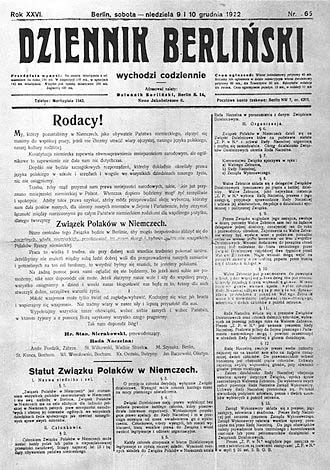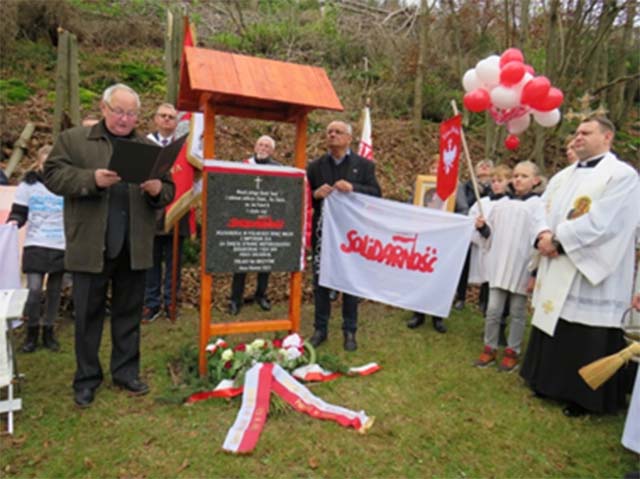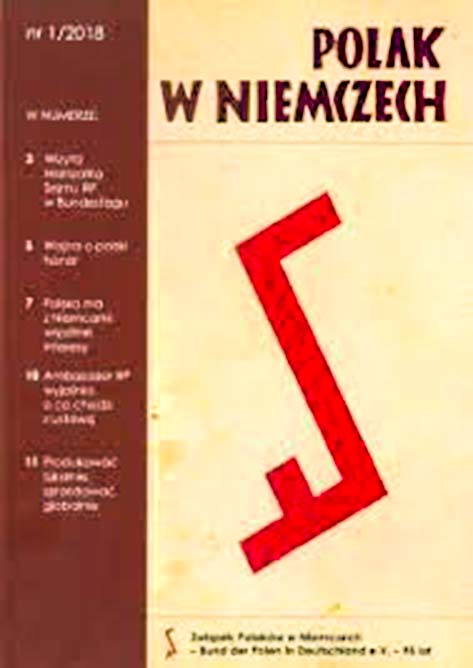At the end of the nineteenth century, during the years of the strong development of the Polish movement in Germany — the center of which was Berlin — a press publication for Poles living there was needed more and more. Two attempts to publish a newspaper were unsuccessful, mainly due to financial problems. It was only in 1897 that a group of people led by Władysław Berkan and priest Piotr Wawrzyniak began to publish "Dziennik Berliński" (Eng. The Berlin Daily, Ger. Die Berliner Zeitung), which was to help Poles preserve "nationality, language and religion". It was published continuously for over 42 years, despite Prussian chauvinism, the war of 1914-1918, and the Nazi terror. [2]

Source: Wikipedia
Dziennik, as a Polish diaspora newspaper, was the daily paper for Poles in Germany. It served informational purposes as well as cultural and social integration of the Polish population dispersed in Berlin. During World War I and re-emigration, it became a source of information about the social situation of compatriots in the area of the reborn Polish state and the organizational condition of the Polish population in Germany. He constantly reported on international and economic matters of Poland. Young Poles who lived and studied in Berlin assisted in editing it. They presented national views on its pages.
After the creation of the Union of Poles in Germany, Dziennik Berliński was taken over by Polish government forces and became the country's liaison with the Polish community in Germany. From 1922, it underwent constant changes of ownership and experienced an uncertain financial situation. Each subsequent publisher gave the political direction in line with his beliefs. It was a period of ups and downs, full of instability, both politically and materially. Despite this, Dziennik Berliński contributed to the integration and development of various Polish organizations. It rendered great services to the Polish society in Germany in the period of organizational and party disintegration and at a time when the Polish state did not exist, yet was soon to be reborn in 1918. [3]
The years 1897–1922 coincided with the period of the existence of "Dziennik", when Polish diaspora organizations flourished, and the nature of the newspaper was influenced by various owners.
The efforts to create a superior Polish community organization led to the establishment of the Union of Poles in Germany (hereinafter: ZPwN, Związek Polaków w Niemczech) in 1922, thus "Dziennik Berliński" became its ideological magazine. The moment of the creation of this organization began the period when "Dziennik Berliński" belonged to the Polish community associated with the authorities of independent Poland.
It was all about uniting socio-political thoughts and ideas about the situation of Poles at home and abroad. Centralization was supposed to protect against Germanization, but it did not prevent the Polish emigration center from having a rival in the Ruhr. There was therefore a need to create a social and political counterbalance. The Westphalian center aspired to the role of the Polish political center, and Berlin at that time gathered a large group of Poles and blocked initiatives coming from the Bohuman political milieu. It [Berlin] wanted to be an equal partner for the Westphalian center, especially after the creation of "Dziennik Berliński". At the same time, it was feared that the newspaper would be perceived as serving the interests of its publisher in Germany.
If one does not know why the magazine was losing its media reach, one can be sure that the reason was the lack of money. Financial difficulties were the main obstacle to the development of the publishing house. There was no possibility of recruiting more employees to the editorial office. They were often employed without any remuneration, or for "little money". Students were able to earn extra money in this way, but it was negatively perceived by the readers. The magazine articles were said to be of dubious quality and linguistically deficient. The magazine stagnated until the next change of owner. The lack of sufficient social acceptance weakened its fiscal condition, which caused it to fall into a bad financial situation.
In April 1922, the "Berlin Daily" stood on the edge of the abyss. Already in March this year, the German Ministry of the Interior received letters informing it about the poor financial condition of the enterprise. The mass returns of Poles to the country and the lack of newsprint paper after World War I resulted in a decrease in circulation. The editorial office of the newspaper informed about the bad situation of the magazine published in a half-size (two-page) version. The "Berlin Journal" was published every day for a number of years, but due to financial problems, it was published only three times, or even only once a week. The exception was the time when the publication of the magazine was completely suspended due to lack of capital (July 1922). [4]
In the 1930s, until the outbreak of World War II, the legal situation of journalists was regulated by the Press Act of October 4, 1933. One conditions to continue practicing the profession was the membership in the German Press Association. In the event of a breach of these requirements, the law provided for the prohibition of writing and the dissolution of the editorial office. This method of harassment quickly found its way to the editorial offices of Polish newspapers. Common were searches and seizures, the confiscation of individual issues, and bans on entry for some journalists. For example, Berlin journalists Stefan Dziamski and Jan Skala were deprived of the rights to publish. On February 14, 1933, Dziennik reported:
Hitler told journalists that the press was to be unfettered. However, critics must not touch personal honor [...]. A newspaper may be banned if anything can be found in it that indicates encouraging disobedience to governmental or regulatory ordinances. [5]
The circulation of "Dziennik Berliński" decreased from year to year. In 1937 it was published in 1,000 copies. The National Socialist government increasingly interfered with the content of "Dziennik Berliński" and other newspapers. In August 1937, in the period of relatively good Polish-German relations, a column "unsere Angelegenheiten" (Our Affairs) appeared, informing, among others, about cases of persecution, arrests, and other anti-Polish activities of the German government. In October of the same year, on the order of the Minister of the Interior, W. Frick, the column "Our Affairs" was removed.
The control over the "Dziennik Berliński" by the authorities intensified in 1939. Since then, each issue was checked by a Gestapo officer. From June 1939, the newspaper was required to publish the title, date and a footer in German.
In June 1939, the Ministry of the Interior informed the Polish press that, despite the right to raise objections to the treatment of minorities, it should present a "true picture of events" taking place in the Reich. The Polish ambassador to Germany wrote from Leipzig to the headquarters in Warsaw on July 27, 1939: "...in the part of the Polish press, including the «Dziennik Berliński», nothing can be found about the persecution or the real situation of the Polish minority."
The last issue of "Dziennik Berliński" was published on September 1, 1939.
A few days later, on September 7, the decision to close Polish organizations and institutions was communicated to the representatives of Poland gathered at the Ministry of the Interior. The "Berlin Journal" and all other Polish newspapers were closed. [6]
"Dziennik" never gained much popularity in the Polish community in Berlin, but for many it was a matter of conscience reminding them of Polishness. It played different roles at different times. It inspired and initiated many patriotic activities, was a liaison and intermediary between organizations and people scattered around various districts of the large city, was a mirror of the opinion of the Polish diaspora. It condemned the harassment of Poles by the Germans, and the Nazi methods of Germanization, and informed the opinion of Poland and the world about these events. The fact of its appearance in the capital of the Reich had political significance. It was a testimony to the existence of the Polish diaspora in Germany, and this was particularly important for the Union of Poles, as the Nazi administration wanted to remain silent about its existence. [7]
After the war, Dziennik Berliński was re-published in 2014. It took over the title of the pre-war organ of the Union of Poles in Germany, but changed its character and purpose.







